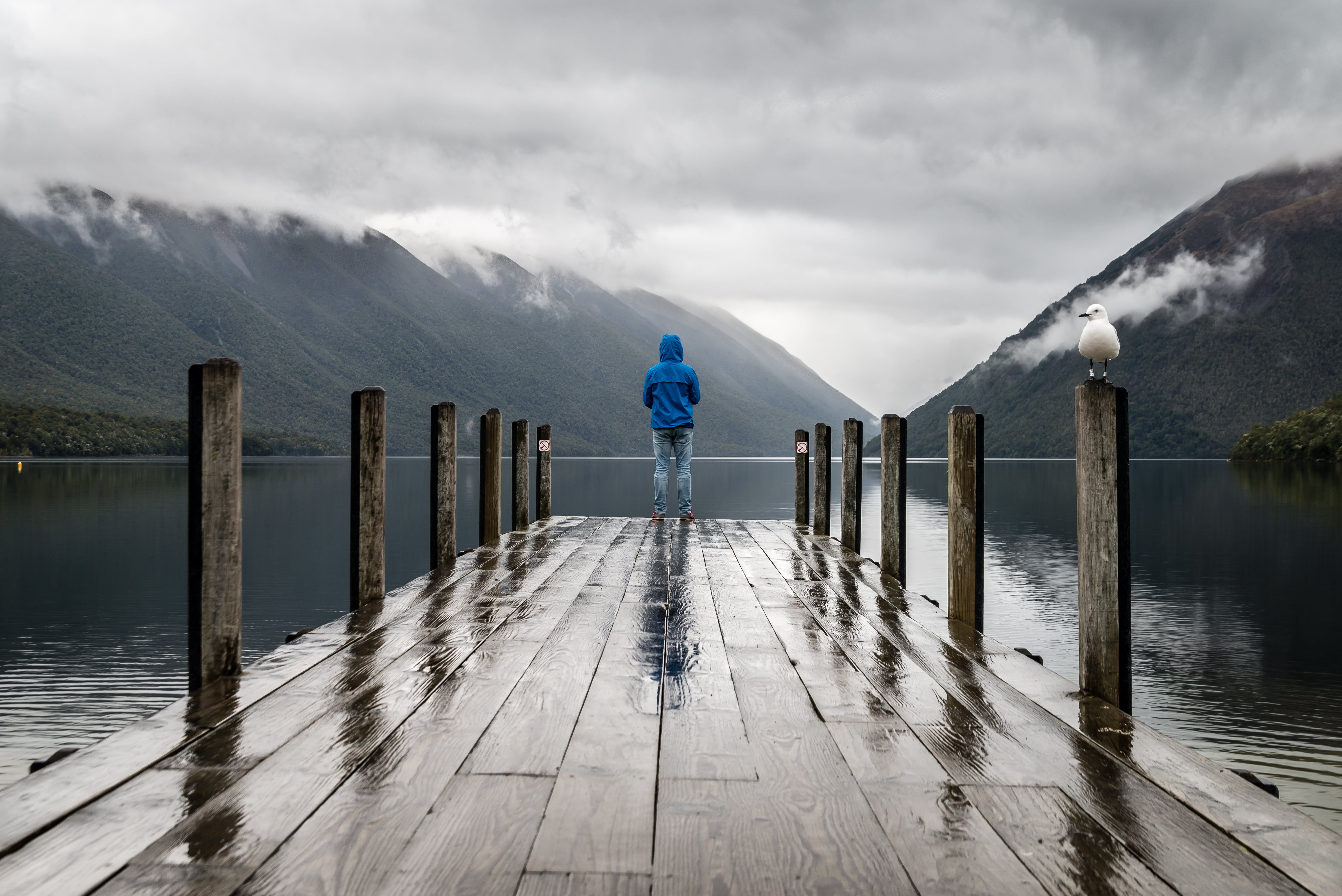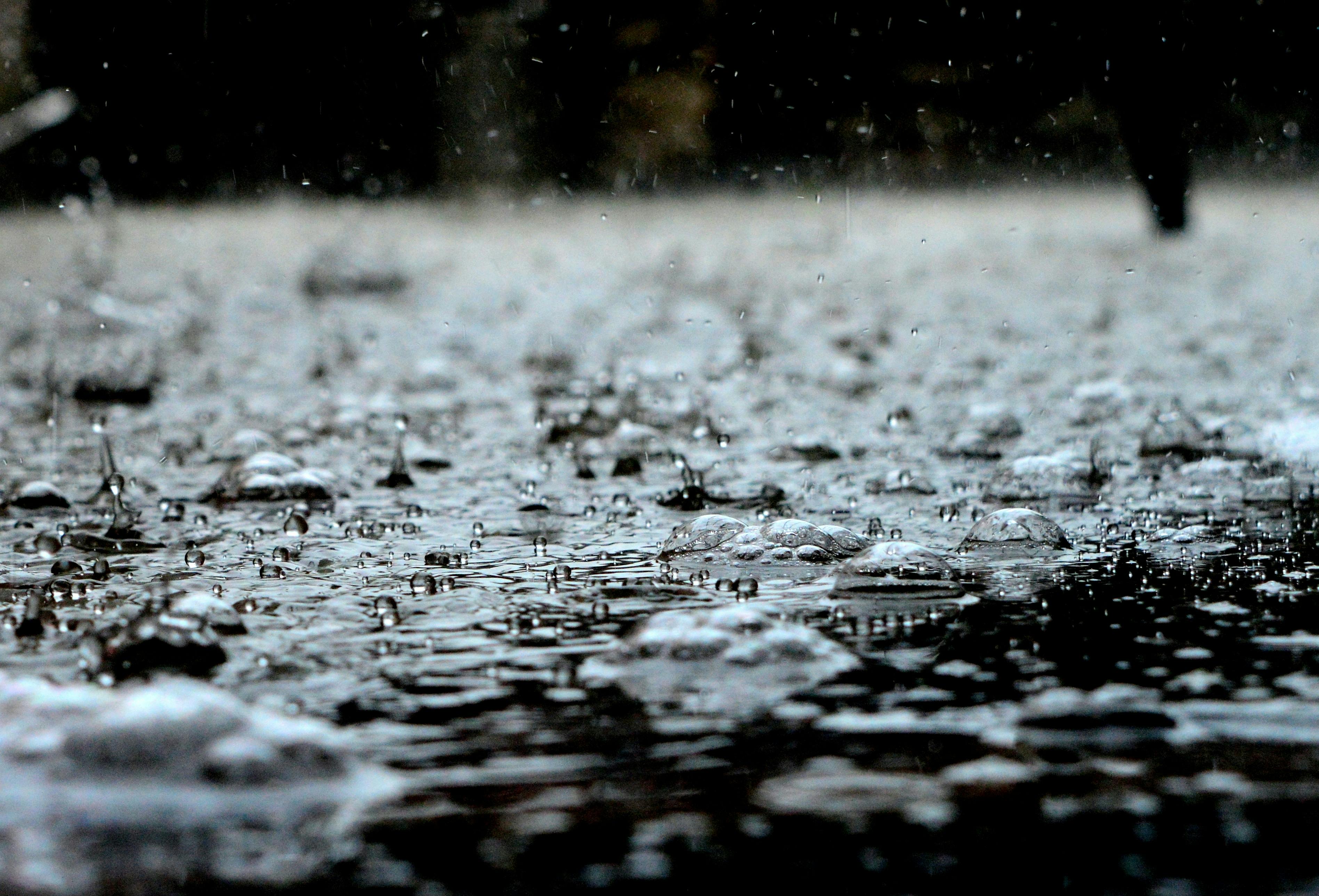Rain water is a naturally occurring form of water that falls from the sky as precipitation. It is often viewed as being pure and clean, and many people believe that it is similar to distilled water. While both rain water and distilled water have their similarities, they are not the same thing. In this article, we will explore the differences between these two forms of water and explain why one might be better than the other for certain applications.No, rain water is not the same as distilled water. Distilled water is created by boiling water and then condensing the steam back into a liquid. This process removes any minerals, salts, or other impurities from the original source of water. Rainwater on the other hand is collected from the atmosphere directly and can contain some impurities depending on what is in the atmosphere at the time of collection.
Benefits of Rain Water
Rainwater is an invaluable natural resource that has a variety of benefits, from providing us with drinking water to sustaining agricultural production. Collecting rainwater can help conserve water supplies, reduce water bills, and provide a reliable source of clean and safe water for many uses. In addition, it can also help reduce flooding and improve the environment by reducing pollutants in our waterways.
The main benefit of collecting rainwater is that it provides a reliable source of clean and safe drinking water. Rainwater is naturally filtered as it falls from the atmosphere, so it’s usually much purer than ground or surface waters. This makes it an ideal source for drinking or cooking purposes, especially in rural communities where access to clean drinking water is limited. It can also be used to irrigate plants and crops, as well as for washing clothes, dishes, and other household tasks.
Rainwater harvesting also helps conserve precious resources by reducing the need for municipal water supplies. By collecting rainwater instead of relying on a public supply, homeowners and businesses can save money on their water bills while helping to preserve our natural resources. Additionally, storing large amounts of rainwater can help prevent
Benefits of Distilled Water
Distilled water is an excellent choice for drinking, cooking, and other household uses. It is free from harmful substances such as bacteria, parasites, and minerals. This type of water has gone through a process of distillation which removes these contaminants and makes it safe to consume. The benefits of using distilled water include:
• Improved Health: Distilled water is considered the purest form of water available and is free from many contaminants that can be found in tap or bottled water. This makes it ideal for people with allergies or sensitivities to chemicals or who are on restricted diets. Drinking distilled water can help to reduce the risk for chronic illnesses such as diabetes, heart disease, and cancer.
• Enhanced Hydration: Since distilled water is free from impurities, it is more easily absorbed by the body than other types of water. This helps to ensure that the body stays properly hydrated and functioning at optimal levels.
• Better Taste: Distilled water tastes much cleaner than regular tap or bottled water because it does not contain any minerals or contaminants that can give it a
Is Distilling Rain Water Possible?
Yes, distilling rain water is possible. Distillation is a process of separating liquids based on their boiling points. In the case of rain water, this involves boiling the water and then condensing the steam to collect the purified liquid. This process works because most impurities, such as salts and other dissolved solids, have higher boiling points than pure water. Therefore, when the water is boiled, only pure water will evaporate into steam and leave behind all of the impurities. The steam can then be cooled and condensed back into a liquid form. The resulting liquid will be much more pure than the original rain water since all of the impurities were left behind in the boiling process.
In addition to removing impurities from rain water, distillation can also make it safe to drink by killing off any harmful bacteria or viruses that may be present in the original sample. This is because boiling temperatures are high enough to kill most microorganisms that could make us sick if we drank them. Therefore, distilling rainwater can provide us with a safe source of drinking water when we don’t have access to treated tap or bottled
Advantages of Distilling Rain Water
Distilling rain water has many advantages. One of the major advantages is that it provides a safe and clean source of drinking water. Distilling rain water removes impurities, such as heavy metals, bacteria, viruses, and chemicals. This makes it a much healthier option than untreated rainwater or tap water. It also eliminates the need to purchase bottled drinking water, reducing plastic waste and environmental concerns.
Another advantage to distilling rain water is that it can be more affordable than purchasing bottled or filtered drinking water. The cost of purchasing a distiller is much less than buying bottled water over time. Additionally, once you own the distiller, there are no ongoing costs to distill your own rainwater.
In addition to providing an affordable and safe source of drinking water, distilling rainwater can also help conserve fresh water resources. This is especially important in areas where fresh water resources are limited or threatened by pollution or drought. By collecting and distilling rainwater, you reduce the amount of fresh groundwater taken from aquifers and other sources for drinking purposes.

Filtering and Purifying Rain Water
Rainwater is one of the most important resources for human life. It is essential to purify and filter rainwater to make it safe for human consumption. The process of purifying and filtering rainwater involves a number of steps, including collection, filtration, disinfection, and storage.
The first step in the process is the collection of rainwater from a suitable source. This can be done by collecting it in tanks or other containers. Once the water has been collected, it must be filtered to remove any impurities such as dust or debris. This can be done using a variety of filters such as fine mesh screens or sediment filters.
After the water has been filtered, it must then be disinfected to kill any harmful bacteria or viruses present in the water. This can be done using either chemical disinfectants such as chlorine or ultraviolet light treatment. The disinfected water must then be stored in a clean container and kept away from direct sunlight to prevent contamination.
Finally, after all these steps have been completed, the
Boiling Rain Water To Make it Safe to Drink
Boiling rain water is an effective way to make it safe for drinking. By bringing the water to a rolling boil, any potential contaminants, such as bacteria, protozoa and viruses, are killed. Boiled water can then be cooled and stored in clean containers for use when needed. Boiling is the most effective method of disinfecting water. Although boiling will not remove any dissolved minerals or chemicals from the water, it will kill any living organisms present in the water, making it safe to drink.
When boiling rainwater, it is important to take certain precautions. First, make sure that your rainwater has been filtered through a fine mesh strainer or cloth before boiling it. This helps to remove any large particles or debris that may be present in the rainwater. Second, make sure that you bring the water to a rolling boil for at least one minute before removing it from heat. This will ensure that all living organisms have been killed and that your water is safe for drinking.
Once you have boiled your rainwater and allowed it to cool, you may want to consider adding a few drops of chlorine bleach
Is Drinking Boiled Rain Water Safe?
Rain water can be a good source of drinking water, but it is important to know if it is safe to drink. Boiling rain water is one way to make it safe for consumption. Boiling the water kills any harmful bacteria and parasites that may be present in the water, making it safe to drink.
It is important to note that boiling the rain water does not remove any chemicals, heavy metals, or other contaminants from the water. Therefore, if there are high levels of these contaminants present in the rain water, boiling will not remove them and they will remain in the final product. To ensure that your rainwater is safe for drinking, it is advisable to have it tested before consuming it or using it for cooking or other purposes.
Boiling can also cause some of the beneficial minerals in rainwater to be removed from the final product. Minerals like calcium, magnesium and sodium are often found in rainwater and can provide important health benefits when consumed. Boiling makes these minerals less available and they may not be present in sufficient quantities after boiling.

Conclusion
Rainwater is not the same as distilled water. Distilled water is created by boiling water and capturing the vapor, which is then condensed back into a liquid form. As this process removes all dissolved substances from the water, it is considered pure. Rainwater, on the other hand, collects dust particles and other impurities as it falls through the atmosphere and therefore contains some dissolved particles. Therefore, while rainwater can be used for a variety of purposes, it cannot be classified as distilled water.
Overall, understanding the differences between rainwater and distilled water can help people make informed decisions about which type of water is best suited for their needs. Rainwater can be a viable option for many applications but should not be used in place of distilled water due to its impurity levels. Thus, it is important to consider all factors before making any choices regarding which type of water to use.

